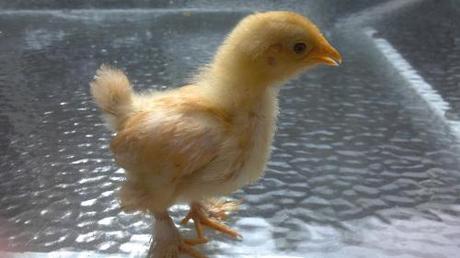I’ve written about bio-security in backyard flocks before, but with the coming of this year’s crop of chicks, and the availability of adults for re-homing, it’s never a bad idea to review the basics.

It’s the same thing when the kids go back to school in the fall. During the summer everyone has been exposed to different bugs and when they all go back to school, it essentially becomes a swap fest. Those with kids, especially younger kids, know exactly what I’m talking about.
Of course the safest way to protect your flock from illness is the “all in, all out” philosophy used by chicken farms. One batch of chickens moves in, they are raised to slaughtering size then all moved out to slaughter. The building gets cleaned and disinfected and then a new batch of chickens move in.
All in, all out.
But that’s not really a practical method for people with smaller flocks. Some of us don’t eat our chickens and so let them live from year to year. With illness, disease, and predator attacks in our flocks, sometimes we might have the need to add new members, whether they be chicks or adults.
So how do you avoid infecting your flock?
Isolation – Keep them away from your flock for a minimum of 2 weeks and some even swear by 3. This is easy with chicks – most people raise them in the house or in a separate area for the 5 or 6 weeks until they are fully feathered. But know that even chicks can carry disease, we had gotten a dozen chicks and within 24 hours one started showing respiratory problems. It eventually died. There was the potential of her infecting my entire flock had I just put that chick under an obliging mama hen.
It’s one of those better safe than sorry situations.
For years, I’ve been telling my blog readers and my workshop participants to buy those wire dog crates when they see them at yard sales. Now is going to be a time when it will come in handy. A large wire cage makes for a perfect isolation area (far away from your flock) for any new potential flock member (and yes, I’ve even created cardboard “crib bumpers” to use wire crates with chicks.)
Control who visits the birds – While in isolation, you want to restrict access to the new flock members. Keep kids and household pets away.
Here’s a potential scenario. Your new flock members carry an intestinal parasite. The neighborhood kids come to see the new chickens. One of them steps in some chicken poop that fell out of the cage. Bored they then go behind the house to the see the other chickens located in the hen house.
The parasites that were in that poop hitch a ride on the bottom of that kid’s shoe and now the rest of your flock is potentially compromised.
Household animals can do the same thing. While you certainly don’t need to keep new chickens isolated in the dark, you do need to control who has access to them.
Keep it clean – Some birds will react to a new setting (including new food) with stress. This stress can manifest itself in several ways, feathers can come off, eggs won’t get laid, and diarrhea could occur. In a manner of speaking, some birds will “come apart” before they pull themselves together.
Just as you would for any creature under your protection, keep the cage clean, change the bedding and make sure the birds have access to food and fresh water at all times.
It’s easy to see isolation as a form of punishment, after all, these chickens didn’t do anything wrong and yet you’re putting them in solitary confinement. It’s not fair.
Nope. Wrong mindset. Isolation is a way to protect your entire flock. Do it and when the new birds have shown you that they carry no illness, then and only then, invite them to play with the rest of your flock.
***
Wendy Thomas writes about the lessons learned while raising children and chickens in New Hampshire. Contact her at [email protected]
Also, join me on Facebook to find out more about the flock (children and chickens) and see some pretty funny chicken jokes, photos of tiny houses, and even a recipe or two.
Like what you read here? Consider subscribing to this blog so that you’ll never miss a post. And feel free to share with those who may need a little chicken love.

